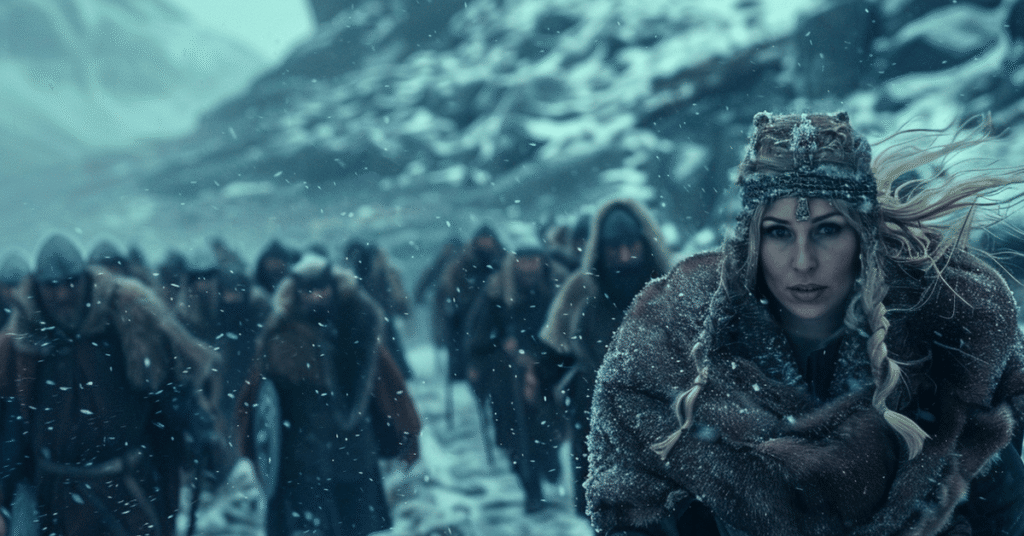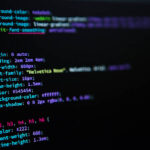Record of Ragnarok manga online provides readers with direct access to one of the most unique and ambitious storytelling experiments in modern manga. Blending historical figures, mythological gods, and philosophical questions about humanity’s right to exist, it offers an unforgettable narrative where the stakes are nothing less than the survival of humankind. The manga has captured global audiences not only for its explosive action but also for its exploration of morality, history, and cultural mythology. For readers searching specifically for Record of Ragnarok manga online, the intent is clear: they want accessibility, context, and detailed information on what makes this series worth their attention.
At its core, Record of Ragnarok follows the epic tournament called Ragnarok, where the gods decide to annihilate humanity after deeming them irredeemable. However, the Valkyrie Brunhilde challenges this decree, convincing the divine assembly to allow a final contest: thirteen humans versus thirteen gods, one-on-one battles that will determine the fate of mankind. What makes this premise electrifying is the carefully chosen roster of human champions—figures like Adam, Jack the Ripper, Lü Bu, and Nikola Tesla—facing deities such as Zeus, Thor, Shiva, and Poseidon. The battles are not mere displays of physical power; they are layered with emotional intensity, symbolism, and cultural weight.
The online accessibility of this manga has amplified its reach far beyond Japan. Readers from every continent are engaging with it digitally, dissecting each chapter, sharing translations, and debating future outcomes. The online medium also fosters real-time discussions, making each release an event. As the story continues to expand, Record of Ragnarok manga online has become more than a series—it is a cultural phenomenon reflecting humanity’s fascination with myth, mortality, and the eternal question of survival.
The Premise of Record of Ragnarok
The foundation of Record of Ragnarok lies in its bold decision to pit gods against humans in a definitive trial. Unlike other tournament-based manga, its setup is rooted in mythology and philosophy. The gods, spanning pantheons from Greek to Hindu, from Norse to Japanese, hold a council to decide whether humanity deserves to continue. The unanimous vote leans toward extinction until Brunhilde intervenes, suggesting that humans should be given a chance to fight for their lives. This sparks the creation of Ragnarok: thirteen matches where the outcome decides the fate of the world.
What separates this manga from typical battle series is the selection of combatants. Rather than purely fictional characters, it draws from actual history and myth. This not only creates tension but also invites readers to reflect on how real-world legends and figures might stand against divine forces. The online distribution of the manga has made these ideas accessible globally, creating conversations that transcend cultural borders. In many ways, its digital accessibility mirrors the story’s universality: all of humanity is represented in these duels.
Plot Progression and Major Arcs
The narrative unfolds through a sequence of matches, each serving as both spectacle and thematic exploration. Every fight is a story of struggle, ideology, and the embodiment of human resilience or divine might.
- Lü Bu vs. Thor: The first match introduces readers to the raw intensity of the tournament. Lü Bu, a legendary warrior of China, battles Thor, the Norse thunder god. Their clash sets the tone for what follows: battles that test the limits of both human will and divine power.
- Adam vs. Zeus: Perhaps the most iconic match, Adam—the first man—faces Zeus, king of the Greek gods. This fight is not only physical but deeply symbolic, representing humanity’s origin challenging divine authority.
- Jack the Ripper vs. Hercules: A morally complex battle where a human villain faces a god-hero. This fight examines justice, morality, and redemption, leaving readers debating who truly deserved victory.
- Raiden Tameemon vs. Shiva: Here, the manga explores themes of destiny and determination as the sumo legend Raiden challenges the Hindu deity of destruction.
Each arc pushes readers to consider not just the outcome but also the philosophical questions tied to each character. Online, these matches are dissected chapter by chapter, with fan theories and debates intensifying the experience.
Characters That Define the Story
The strength of Record of Ragnarok lies in its roster. Each fighter is carefully chosen to embody qualities that resonate with readers.
- Human Fighters: Adam symbolizes mankind’s primal defiance, while Jack the Ripper represents the darker side of humanity. Figures like Nikola Tesla and Raiden highlight humanity’s ingenuity and strength.
- Gods: From Zeus’s overwhelming dominance to Shiva’s philosophical ferocity, the gods reflect the power structures humanity has historically revered and feared.
The balance between these forces creates compelling drama. Readers are not only watching fights but are invested in the ideologies behind them.
Table 1: Comparison of Fighters in Record of Ragnarok
| Character | Side | Origin | Notable Ability | Battle Outcome |
|---|---|---|---|---|
| Adam | Human | Biblical | Divine Reflection | Close defeat vs. Zeus |
| Thor | God | Norse Myth | Mjolnir’s Power | Victory over Lü Bu |
| Jack the Ripper | Human | Historical | Deception & Trickery | Victory vs. Hercules |
| Shiva | God | Hindu Myth | Cosmic Dance | Victory vs. Raiden |
| Lü Bu | Human | Chinese Legend | Sky Piercer Halberd | Defeated by Thor |
Themes That Resonate With Readers
Beyond combat, the manga explores profound themes. One recurring theme is mortality versus divinity: gods represent eternity and power, while humans embody struggle and fleeting existence. Yet it is this very fragility that gives humans their strength. Another theme is justice and morality, especially evident in Jack the Ripper’s controversial inclusion. His victory forces readers to question whether morality is absolute or relative in the face of survival.
Cultural depth also plays a role. Each god represents a belief system, while each human symbolizes ingenuity, resilience, or darker truths of mankind. By weaving these threads together, the story creates a tapestry that resonates globally, especially when discussed in online spaces where cultural perspectives intermingle.
The Online Reading Experience
Reading Record of Ragnarok manga online offers a unique dimension. Digital access ensures that fans worldwide can engage with the series, often on the same day chapters release. Online platforms also allow for rapid translations, which are crucial for international readers. Discussions on forums, social media, and dedicated manga sites enrich the reading experience, turning each chapter into a shared event.
However, the online availability also raises questions about legality. While fan translations have boosted the manga’s reach, readers are increasingly aware of the importance of supporting creators through legal channels. This duality—instant access versus responsible readership—mirrors the very themes of choice and consequence within the manga itself.
Artistic Style and Visual Impact
One of the defining features of Record of Ragnarok is its art. The bold linework, intricate character designs, and dynamic battle sequences create a sense of grandeur. Online readers often note how digital scans capture or sometimes lose the subtleties of the original artwork. For instance, the sheer intensity of Adam’s fight against Zeus is conveyed through detailed close-ups that emphasize emotion as much as action.
The series also excels at using visuals to symbolize deeper meaning. A god’s calm expression during battle might reflect eternal confidence, while a human’s bloodied grin conveys defiance. Online communities frequently share panels, highlighting how the artistry contributes to storytelling.
Record of Ragnarok’s Place in Modern Manga
In the broader landscape of manga, Record of Ragnarok occupies a unique space. While battle-driven series are common, its fusion of mythology, history, and philosophy sets it apart. Comparisons are often made to Fist of the North Star or Baki the Grappler, but its mythological scope aligns it more closely with epics than standard shōnen fare.
Online, this uniqueness amplifies its appeal. Readers who may not typically engage with manga are drawn in by familiar figures like Hercules or Zeus, reimagined in a new light. In many ways, its online popularity mirrors the broader trend of globalized manga consumption, where cultural exchange fuels storytelling impact.
Reception, Controversies, and Criticism
While widely celebrated, the manga has not escaped controversy. Some readers criticize its pacing, noting that fights can feel extended. Others question historical portrayals, particularly in the depiction of certain religious or cultural figures. Online debates about respect, accuracy, and interpretation are frequent, showing how the manga touches sensitive cultural chords.
Yet, this very controversy enhances its visibility. For many, engaging with these debates online is part of the experience, making Record of Ragnarok manga online not just a reading activity but a cultural conversation.
Future Expectations and Speculations
As the series progresses, anticipation grows around which human and god combatants will face each other next. Online leaks and fan predictions fuel intense speculation. Will Nikola Tesla use science to overcome divine might? Will figures like Odin or other deities join the fray? These questions keep readers hooked, with online communities acting as spaces for collaborative theorizing.
The unpredictability of outcomes—humans sometimes winning against overwhelming odds—ensures that no result is guaranteed. This balance maintains suspense, a key factor in why online readers remain deeply invested.
Conclusion
Record of Ragnarok manga online has become more than a battle series—it is a cultural phenomenon that merges history, mythology, and human spirit into an unforgettable narrative. Its availability online has ensured that readers across the globe can engage with its stories, debates, and artistry. Each chapter is not only a continuation of the tournament but also an invitation to explore deeper philosophical questions about life, mortality, and justice.
The series stands out because it refuses to present battles as mere physical contests. Instead, every fight is a symbolic encounter between belief systems, moral values, and existential themes. For readers, experiencing it online is not only about accessibility but about becoming part of a global dialogue that reflects humanity’s endless fascination with myth and meaning.
As one fan put it in an online discussion: “Every punch feels like history colliding with divinity, and every page reminds us why we fight to exist.” This sentiment captures the essence of why Record of Ragnarok manga online is not just a series but a mirror of humanity’s eternal struggle against forces greater than itself.
FAQs
1. What is Record of Ragnarok manga about?
It is a series where 13 gods face 13 humans in one-on-one battles to decide humanity’s survival.
2. Where can readers find Record of Ragnarok manga online legally?
It is available on licensed digital platforms and official publishers’ websites, ensuring both quality and creator support.
3. Who are the most popular fighters in the manga?
Adam, Jack the Ripper, and Lü Bu are among the most celebrated human fighters, while Zeus and Shiva dominate the gods’ side.
4. How many volumes of Record of Ragnarok are currently available?
The manga is ongoing, with multiple volumes already published and new chapters releasing regularly.
5. Is the manga different from the anime adaptation?
Yes, while the anime adapts the story, the manga provides more detail, pacing, and artistic depth in battles and expressions.







